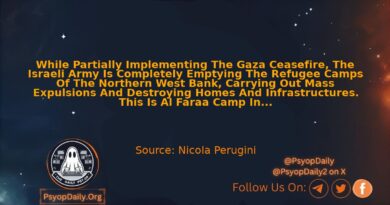Haniyeh killing: Eight other times Israel was accused of assassinations in Iran
Haniyeh killing: Eight other times Israel was accused of assassinations in Iran
Wed, 07/31/2024 – 15:49
Israel is the main suspect in the assassination of Hamas leader Ismail Haniyeh, who was killed in Tehran on Wednesday.
According to Hamas, the killing was the result of a “treacherous Zionist” attack on his residence.
A source close to officials in the Iranian presidency told Middle East Eye that Haniyeh was staying near Tehran’s Saadabad palace, which is used by the president’s office, when he was killed.
Israel did not immediately comment on Haniyeh’s death – it typically neither confirms nor denies assassination attempts on foreign soil.
Haniyeh’s death is one of several killings in Iran blamed on Israel, which have included Iranian military officers, an al-Qaeda operative and a string of scientists linked – to varying degrees – to Iran’s nuclear programme.
Middle East Eye takes a look at the assassinations in Iran that were attributed to Israel.
Masoud Alimohammadi
In January 2010, Masoud Alimohammadi, a professor specialising in particle physics at the University of Tehran, was killed by a remote-controlled bomb that had been attached to a motorcycle near his home.
He was a supporter of the Iranian opposition movement, which led some to accuse Tehran authorities of carrying out the assassination.
However, Tehran’s chief prosecutor blamed the CIA and Mossad, pointing out that Alimohammadi was a nuclear scientist, and the US and its allies were attempting to curb Iran’s nuclear programme.
The US State Department described the accusations as “absurd”.
Iranian authorities arrested several suspects in his killing, accusing them of working for the Israeli intelligence service.
Majid Shahriari
Ten months after the killing of Alimohammadi, another nuclear scientist, Majid Shahriari, was killed in similar circumstances.
Shahriari was reportedly a member of the nuclear engineering department of Shahid Beheshti University in Tehran.
A motorcyclist pulled up to Shahriari’s car and attached a bomb, killing him in the explosion. His wife and driver were wounded but survived.
Then-president Mahmoud Ahmadinejad said the attack was “undoubtedly the hand of the Zionist regime” and its western allies.
Shahriari was a colleague of Alimohammadi, Al Jazeera reported at the time.
Darioush Rezaeinejad
In July 2011, the next scientist to be assassinated in Iran was Darioush Rezaeinejad.
Two men riding motorcycles fatally shot Rezaeinejad and wounded his wife. An unconfirmed report in an Israeli intelligence publication said that Rezaeinejad had been working on a nuclear detonator.
Iranian authorities rejected the claims, stating he was merely an academic.
An Israeli intelligence source told German publication Der Spiegel that Mossad was behind the attack. Israeli officials did not comment.
Hassan Tehrani Moghaddam
Hassan Tehrani Moghaddam was among 17 members of Iran’s Islamic Revolutionary Guard Corps (IRGC) killed during a blast in Tehran in November 2011.
Moghaddam had been described as the “architect” of Iran’s missile programme, and was crucial in developing artillery and missile units. Ayatollah Ali Khamanei was among those to attend his funeral.
Iran officially described the event as an “accident” during the routine transfer of munitions.
A source with close links to Iranian authorities told The Guardian the operation had been carried out by Mossad. Time magazine also cited a western intelligence source as stating that Mossad was responsible.
Tehran dismissed such reports, with the armed forces chief of staff stating that “the recent incident and blast is not related to Israel or America”. Israel neither confirmed or denied its involvement.
Mostafa Ahmadi-Roshan
In January 2012, Mostafa Ahmadi Roshan became the latest Iranian scientist to be killed.
A motorcyclist was once again used in the killing, riding up to Roshan’s car and attaching a magnetic bomb that killed the scientist and his driver.
Roshan was a professor at a technical university in Tehran and a department supervisor at the Natanz uranium enrichment plant.
Then-vice president Mohammad Reza Rahimi blamed the attack on Israeli agents.
Abdullah Ahmed Abdullah
The New York Times reported in November 2020 that deputy al-Qaeda leader Abdullah Ahmed Abdullah had been assassinated by Israeli agents in Tehran three months earlier.
Abdullah, also known as Abu Muhammad al-Masri, was allegedly killed by two Israeli operatives on motorcycles, at the request of the United States.
Miriam, the widow of Osama bin Laden’s son Hamza and Abdullah’s daughter, was also killed, according to US intelligence sources who spoke to the New York Times.
Abdullah had been indicted in the United States for the 1998 bombings of its embassies in Tanzania and Kenya.
Iran, Israel and the US did not publicly acknowledge the killing.
Mohsen Fakhrizadeh
Top Iranian nuclear scientist Mohsen Fakhrizadeh was gunned down in Tehran in November 2020.
Fakhrizadeh was renowned as the architect of Iran’s military nuclear programme.
He became the face of Iran’s nuclear ambitions when named in the International Atomic Energy Agency’s 2015 “final assessment” of open questions about Iran’s nuclear programme and whether it was aimed at developing a nuclear bomb.
According to the New York Times, a Mossad team killed Fakhrizadeh with a computerised machine gun that required no on-site operatives.
The device weighed around a tonne and was smuggled into Iran in smaller parts and later reassembled.
Hassan Sayyad Khodaei
In May 2022, gunmen on motorcycles opened fire on a vehicle in Tehran, killing senior Republican Guard officer Hassan Sayyad Khodaei.
Khodaei was killed by five gunshots, according to Iranian state media.
He was a member of the Quds Force, which was responsible for the Republican Guard’s foreign operations. Khodaei reportedly served in Syria.
Tehran blamed Israel for the killing and vowed revenge.
Citing intelligence officials briefed on the matter, the New York Times reported that Israel had informed American officials that it was behind the killing.


